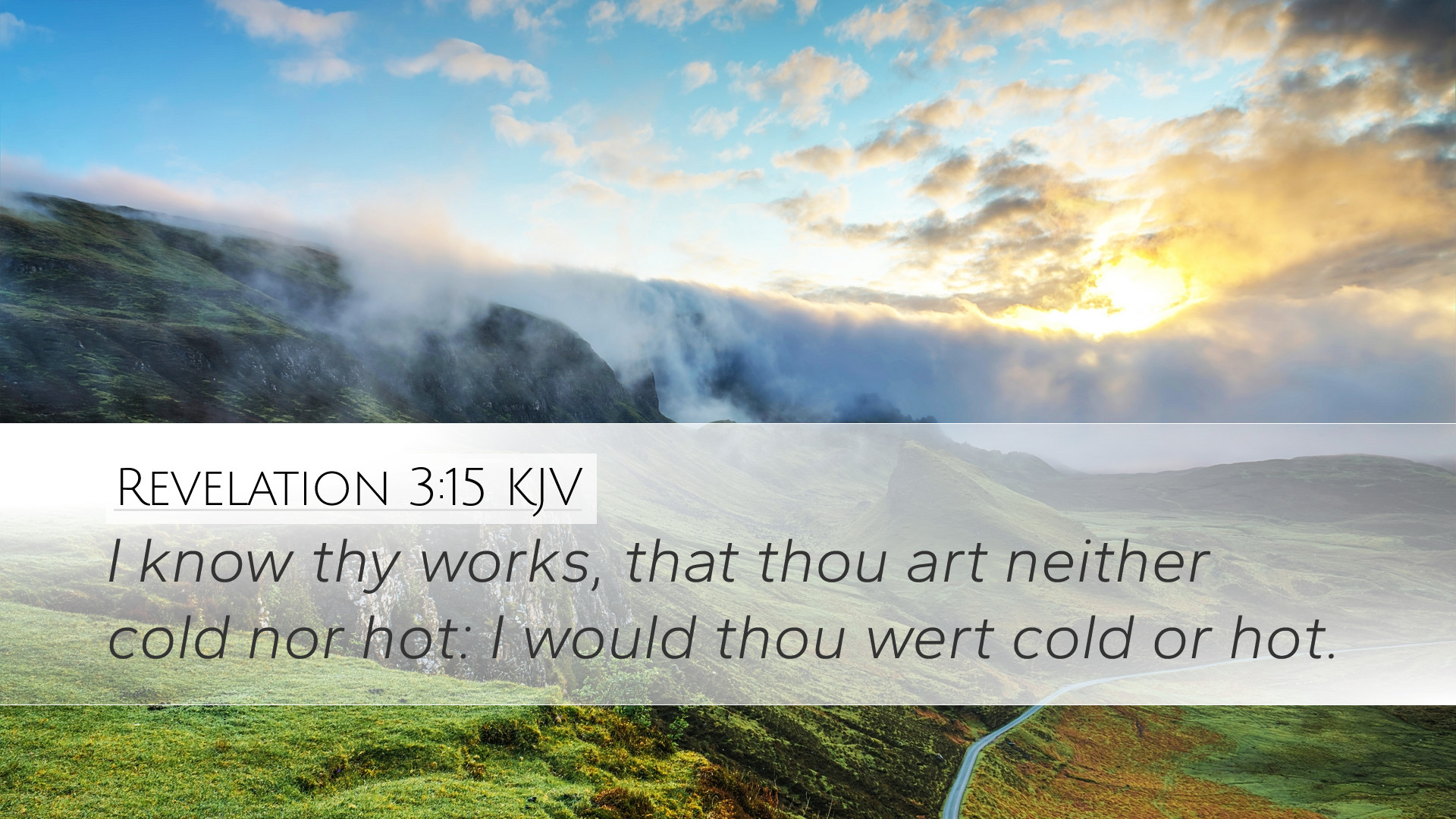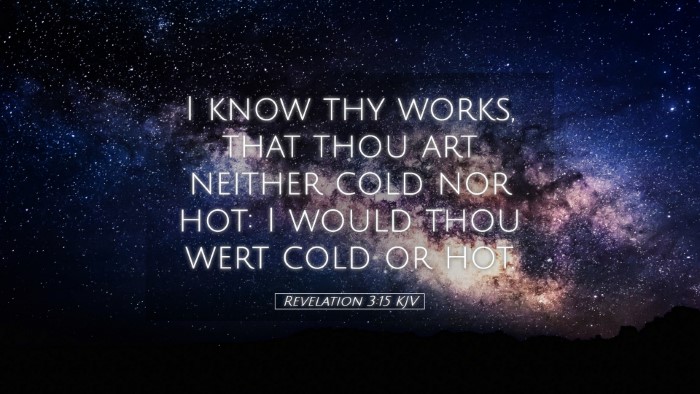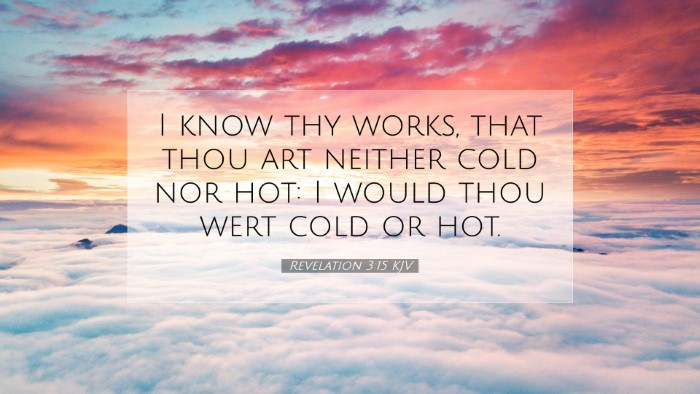Commentary on Revelation 3:15
In Revelation 3:15, the verse reads: "I know your works, that you are neither cold nor hot. I would that you were cold or hot." This verse has been extensively commented upon by various theologians throughout church history, revealing profound insights into the nature of faith and spiritual discernment.
Understanding the Context
This verse is part of a letter to the church in Laodicea, one of the seven churches addressed in the Book of Revelation. Laodicea was a wealthy city, known for its banking, textile, and medical industries, but the church there became emblematic of spiritual complacency.
Both Matthew Henry and Albert Barnes emphasize that the condition of the Laodicean church is reflective of a broader trend in the modern church—one of lukewarmness and self-sufficiency.
Interpretation of "Cold" and "Hot"
When Christ states, "I would that you were cold or hot," He is using the metaphor of temperature to indicate spiritual fervor.
- Cold: Represents distance from God and an absence of spiritual engagement.
- Hot: Signifies an enthusiastic and fervent faith that is active in serving God.
Henry points out that being "cold" in this context might actually be preferable to being lukewarm, as coldness acknowledges one's need for God's grace.
The Dangers of Lukewarmness
Lukewarmness is described as a state of mediocrity and complacency. Adam Clarke notes that the Laodiceans thought they were rich and self-sufficient, yet they were spiritually in poverty. Clarke's commentary emphasizes that a false sense of security can blind a believer to their true spiritual condition.
Barnes echoes this concern by stating, "Lukewarmness is the most dangerous condition of the soul; it is indicative of a kind of indifference that can lead to complete spiritual apathy."
Spiritual Implications
For pastors and theologians, this verse serves as a crucial reminder of the importance of spiritual vitality and the dangers of remaining in a comfortable faith. The call to be "hot" is not merely about zeal but about a deep and abiding relationship with Christ.
- Call to Action: The passage encourages believers to evaluate their spiritual temperature.
- Spiritual Discernment: It urges reflection on whether one's actions truly align with God's will.
Concluding Thoughts
This verse encapsulates a powerful message for the church at large. Whether one finds themselves in a state of "cold" or "hot," what is critical is to avoid lukewarmness. Matthew Henry poignantly concludes that Christ's desire is for believers to fervently pursue Him, understanding that a lukewarm heart does not reflect true discipleship.
In the grand scheme of faith, it is the passionate followers of Christ who stand as beacons of light amidst a culture of apathy. Therefore, let this serve as an invocation to stir our hearts toward greater devotion and sincerity in our walk with God.


